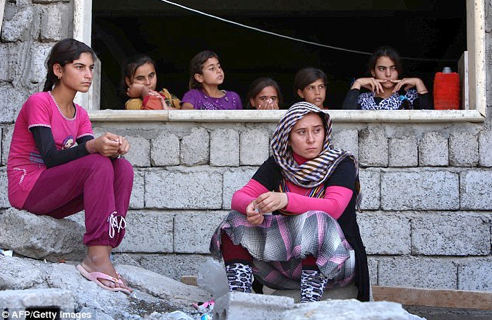This article considers to what extent strategic measures to promote gender equality are implemented through feminist platforms and initiatives. In the course of my research, I had the opportunity to speak with the founders of an online app “Garde ton corps” (keep and protect your body) that aims to ensure women’s security in the city of Aix-en-Provence and has plans to expand nationally throughout France.
Envisioning a feminist use of digital tools
In the introductory part of their work “eGirls, eCitizens”, Jane Bialey and Valerie Steeves urge decision-makers and scholars into “getting beyond the binary notion of technology as good or bad for girls.” Their analysis is based on an “eGirls project”, which consisted of inter-disciplinary research on gender privacy and equality as well as interviews with girls and women. According to the authors, the debates regarding women and the Internet revolve around over-simplified ideas that consider the Internet either as a patriarchal way to watch women or as an opportunity for women to defeat patriarchy. Yet, every girl and woman experiences their relationship with digital tools differently, and as such, the roots of violence in a country need to be considered when confronting both sexual and sexualized aggression towards women. The success of an online initiative that supports gender equality is intrinsically linked with several factors, such as the economy of a country, its social values, the methods and ideologies of the platform designer, and the law. Analyzing the way women and girls live, define, and express their digital experience in relation to sexualized aggression requires us first to examine the causes of this violence. These causes may be social, political, or economic, and often result from a combination of all three. Taking these factors into account provides a more nuanced and comprehensive vision of women’s lives, and reveals that online spaces can offer positive opportunities for women to express how they experience discrimination and how they engage with others online.
Garde ton corps: an app created by women, for women
The app “Garde ton corps”, was created in 2019 in the South of France by three young professionals, Caroline Pheng, Anais Carmona, and Pauline Vanderquand. This app focuses on helping women to stay safe when they are out at night. Their app works through a geo-tracking system and currently functions throughout Aix-en-Provence. Three buttons are available depending on the situation encountered. The first button, “I go home”, allows the user to be located by close friends or family members during her trip back home. An alarm rings if the user has a problem or if the direction significantly changes. The second button, “leave me alone”, can be used if the user experiences harassment and she will be given directions to the nearest “safe bar” that collaborates with the association. The man following her will be refused entry. The third button, “Help me”, is triggered when the user feels threatened. Then, a message is sent to pre-determined contacts who will see her location. On the website, women can comment on and share any violence or abuse they face.
An initiative created to promote cooperation and participation
On March 26, I had the opportunity to talk with these three women about their work. In Pauline’s words, “‘Garde ton Corps’ is more than just an app, it is a real community of men and women which relies upon mutual cooperation. Creating a movement that promotes shared work will lead to better results and will contribute to expanding our endeavour.” This application stems from their own experience, their friends’ testimonies, statistics, and studies that they conducted on women’s feelings of insecurity. According to The National Institute of Statistics and Economic Studies, in 2018 in France, 21.2% of women aged from 14 to 29 often or sometimes give up the idea of leaving their homes to go out due to factors related to feelings of insecurity.
The three co-creators chose Aix-en-Provence to launch their app because they know the city and its people. “Our first priority is to act, and the tools given to us can be found in the city we live in,” says Caroline. Their movement is expanding to other cities and they have received numerous testimonies and messages from other cities in France. However, this expansion is conditional upon local laws and relationships with the locals. The three founders collaborate with “smart cities” in order to fill social gaps with digital solutions. They also cooperate with the users, asking for their opinions, listening to their ideas, collecting testimonies, and work with bars’ and clubs’ owners in order to develop an offline network of physical safe spaces.
Due to strong enthusiasm from citizens, Anais, Caroline and Pauline have been able to collect statistics that have helped them to enlarge and improve their digital platform. The founders have received such great support that it gives them the strength and motivation to continue fighting for women’s rights and gender security. “Women, and more generally human beings, are entitled to ask for help,” says one of the founders. Yet, some women are reluctant to ask. But with this application they can signal their offender by showing the logo of our movement to a bouncer working in a partner club.” “Being able to combine real life with a virtual one is a significant advancement for us,” says Anais. In a world in which online and offline worlds are becoming increasingly difficult to disentangle, ‘Garde ton corps’ may be the first of many such apps to improve the lives and safety of women around the globe.
Pictures: Portrait of the founders and photo of a smartphone (application “Garde ton corps”) Credit: Solau Mohana
Disclaimer: Any views or opinions expressed in articles are solely those of the authors and do not necessarily represent the views of the NATO Association of Canada.




